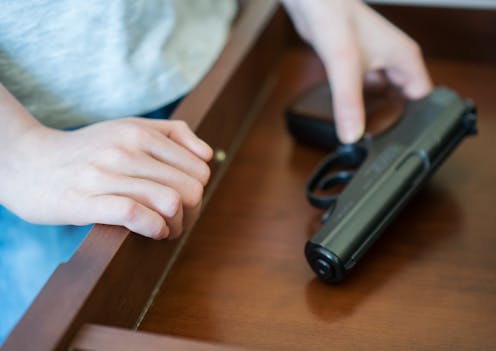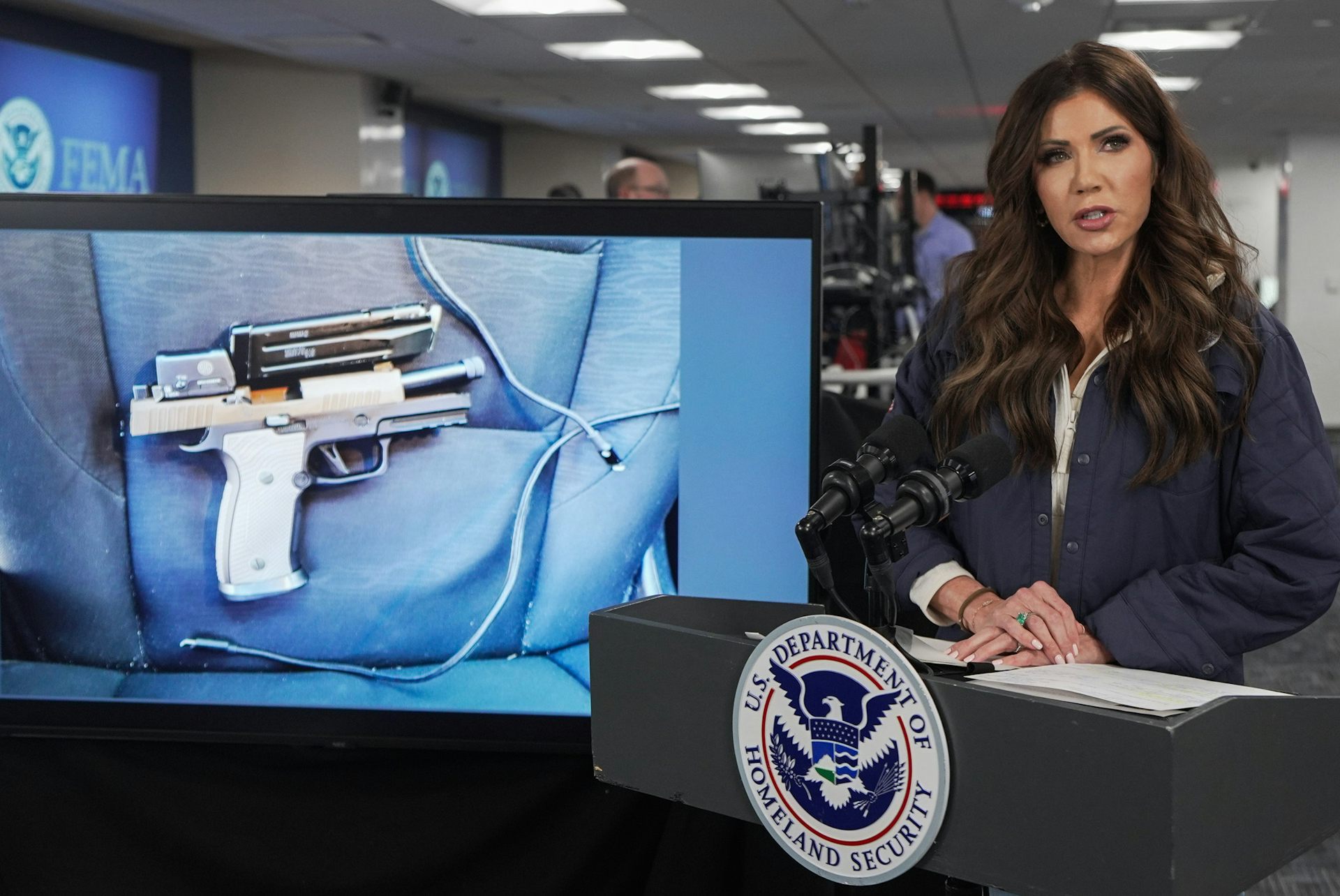A 1-minute gun safety video helped preteen children be more careful around real guns – new research
Kids were more likely to tell an adult and less likely to touch or hold a handgun that they discovered if they’d recently watched a short video about gun safety.

The Research Brief is a short take about interesting academic work.
The big idea
Children who watched a 1-minute-long gun safety video were more cautious when they found a real handgun hidden in a drawer in our lab compared to children who watched a car safety video, according to our randomized clinical trial published in the journal JAMA Pediatrics. We observed this difference even though children saw the gun safety video a week earlier at home and even after they had watched scenes from a violent movie in our lab.
We tested 226 children ages 8 to 12. By the flip of a coin, children watched either a gun safety video or car safety video alone at home. Both safety videos featured The Ohio State University Chief of Police in full uniform. Younger children tend to respect authority figures, especially those in uniform.
Then a week later, pairs of kids – who were friends or siblings, for example – came to our lab at Ohio State to participate in what we told them was a study about what children do for entertainment.
First, the child volunteers watched scenes from a PG-rated violent movie. After 20 minutes, they went to a playroom furnished with toys and games like Lego and checkers. The room also contained a file cabinet with two disabled 9 mm handguns hidden in the bottom drawer. We told the kids they could play with any of the toys and games in the room and then left them alone. A hidden camera videotaped the children’s behavior.
By the end of 20 minutes, 96% of the children had found the guns. Children are naturally curious, and adults often underestimate their ability to find guns hidden in the home.
Kids who saw the gun safety video (compared to the car safety video) were more likely to tell an adult (33.9% of kids vs. 10.6% of kids), less likely to touch a gun (39.3% vs. 67.3%) and held it for less time if they did touch it (42.0 seconds vs. 99.9 seconds). They were also less likely to pull the trigger (8.9% vs. 29.8%), and pulled the trigger fewer times if they did pull it (4.2 vs. 7.2).
Risk factors that raised the likelihood of engaging in unsafe behavior around the guns included being male, watching age-inappropriate PG-13 and R-rated movies, and interest in guns, as reported by parents.
We also identified several protective factors that made children less likely to engage in unsafe behavior around the guns. One was previous exposure to gun safety material in a course or video. Another was having guns in the home, which makes sense because surveys find that parents with guns are more likely to talk to their children about gun safety than parents without guns. Finally, having negative attitudes about guns, like believing they’re not cool or fun, made kids less likely to engage in unsafe behavior in our study.
Why it matters
Guns now kill more children in the United States than any other cause, including motor vehicle crashes, drug overdoses and poisoning. And the rate of gun-related deaths among U.S. children has been increasing for about a decade. Gun deaths among U.S. children increased most sharply between 2019 and 2021, from 1,732 to 2,590.
Gun safety videos might be a relatively simple but effective option to help decrease these gun-related deaths and injuries.
What still isn’t known
Participants in this study watched the safety video about a week before they came to our lab. Future longitudinal research is needed to establish how long the protective effects of firearm safety videos might last.
To see if our results apply in other situations, future research should also be conducted in a more naturalistic setting – like the home – and with children of a variety of ages and from geographical locations beyond Ohio.
What other research is being done
Other research on children and gun safety primarily focuses on access to guns and responsible, safe and secure gun storage. The American Academy of Pediatrics recommends that gun owners store their firearms unloaded, locked up and separate from ammunition.
The authors do not work for, consult, own shares in or receive funding from any company or organization that would benefit from this article, and have disclosed no relevant affiliations beyond their academic appointment.
Read These Next
What Olympic athletes see that viewers don’t: Machine-made snow makes ski racing faster and riskier
US Olympic skiers and scientists explain the sharp differences between natural snow and machine-made…
A terrorism label that comes before the facts can turn ‘domestic terrorism’ into a useless designati
A ‘domestic terrorism’ label that comes before the facts teaches the public to treat the term as…
You’ve reached your weight loss goal on GLP-1 medications – what now?
Due to the body’s natural tendency to restore its former weight, many people regain their lost weight…






